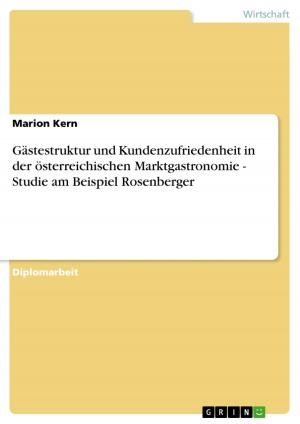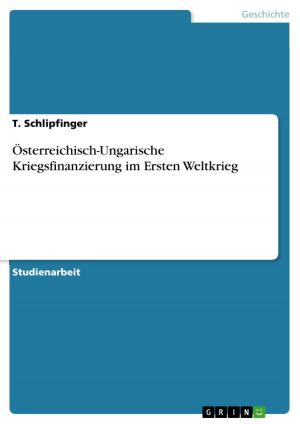Decision-making process of start-ups during their incubator choice in Switzerland
Business & Finance, Entrepreneurship & Small Business, New Business Enterprises| Author: | Isabelle Habegger | ISBN: | 9783668057043 |
| Publisher: | GRIN Verlag | Publication: | September 30, 2015 |
| Imprint: | GRIN Verlag | Language: | English |
| Author: | Isabelle Habegger |
| ISBN: | 9783668057043 |
| Publisher: | GRIN Verlag |
| Publication: | September 30, 2015 |
| Imprint: | GRIN Verlag |
| Language: | English |
Master's Thesis from the year 2015 in the subject Business economics - Company formation, Business Plans, grade: A, Novancia Business School Paris, language: English, abstract: This following report investigates the decision-making process of Swiss start-ups during their selection of an incubator in Zurich. It explores the ways start-ups decide on an incubator, which allows introducing a model for this matter. Thus, this study is motivated by the following research question: 'What is the decision-making process of start-ups when selecting an incubator in Switzerland'? Previous literature failed to address the combination of incubation, start-ups and decision-making. Existing literature has focused predominantly on incubators' performance, success factors of start-ups and decision-making reasons for creating a new venture. In other words, the gap in the literature is that primary research regarding incubator selection by start-ups has not been conducted. Hence, the aim of this research is to fill this gap by identifying the trigger for a start-up's incubator search, the information channels it uses and the criteria for decision-making, which makes it possible to develop a framework for future start-ups, and existing as well as future incubators. The outcomes were based on semi-structured interviews with 10 start-ups in Zurich. Results showed that the trigger for incubator search is office space. Furthermore, the decision-making distinguishes itself between experienced and inexperienced entrepreneurs. Experienced mostly use search engines such as Google whereas inexperienced entrepreneurs obtain information through their close social circles. Criteria for decision-making for experienced entrepreneurs are tangible services such as infrastructure and location whereas for inexperienced entrepreneurs intangible services such as networking and coaching are valuable. The findings allow introducing a model that is useful for both existing and future incubators with suggestions to service offerings and future start-ups, providing suggestions about the decision-making process.
Master's Thesis from the year 2015 in the subject Business economics - Company formation, Business Plans, grade: A, Novancia Business School Paris, language: English, abstract: This following report investigates the decision-making process of Swiss start-ups during their selection of an incubator in Zurich. It explores the ways start-ups decide on an incubator, which allows introducing a model for this matter. Thus, this study is motivated by the following research question: 'What is the decision-making process of start-ups when selecting an incubator in Switzerland'? Previous literature failed to address the combination of incubation, start-ups and decision-making. Existing literature has focused predominantly on incubators' performance, success factors of start-ups and decision-making reasons for creating a new venture. In other words, the gap in the literature is that primary research regarding incubator selection by start-ups has not been conducted. Hence, the aim of this research is to fill this gap by identifying the trigger for a start-up's incubator search, the information channels it uses and the criteria for decision-making, which makes it possible to develop a framework for future start-ups, and existing as well as future incubators. The outcomes were based on semi-structured interviews with 10 start-ups in Zurich. Results showed that the trigger for incubator search is office space. Furthermore, the decision-making distinguishes itself between experienced and inexperienced entrepreneurs. Experienced mostly use search engines such as Google whereas inexperienced entrepreneurs obtain information through their close social circles. Criteria for decision-making for experienced entrepreneurs are tangible services such as infrastructure and location whereas for inexperienced entrepreneurs intangible services such as networking and coaching are valuable. The findings allow introducing a model that is useful for both existing and future incubators with suggestions to service offerings and future start-ups, providing suggestions about the decision-making process.















